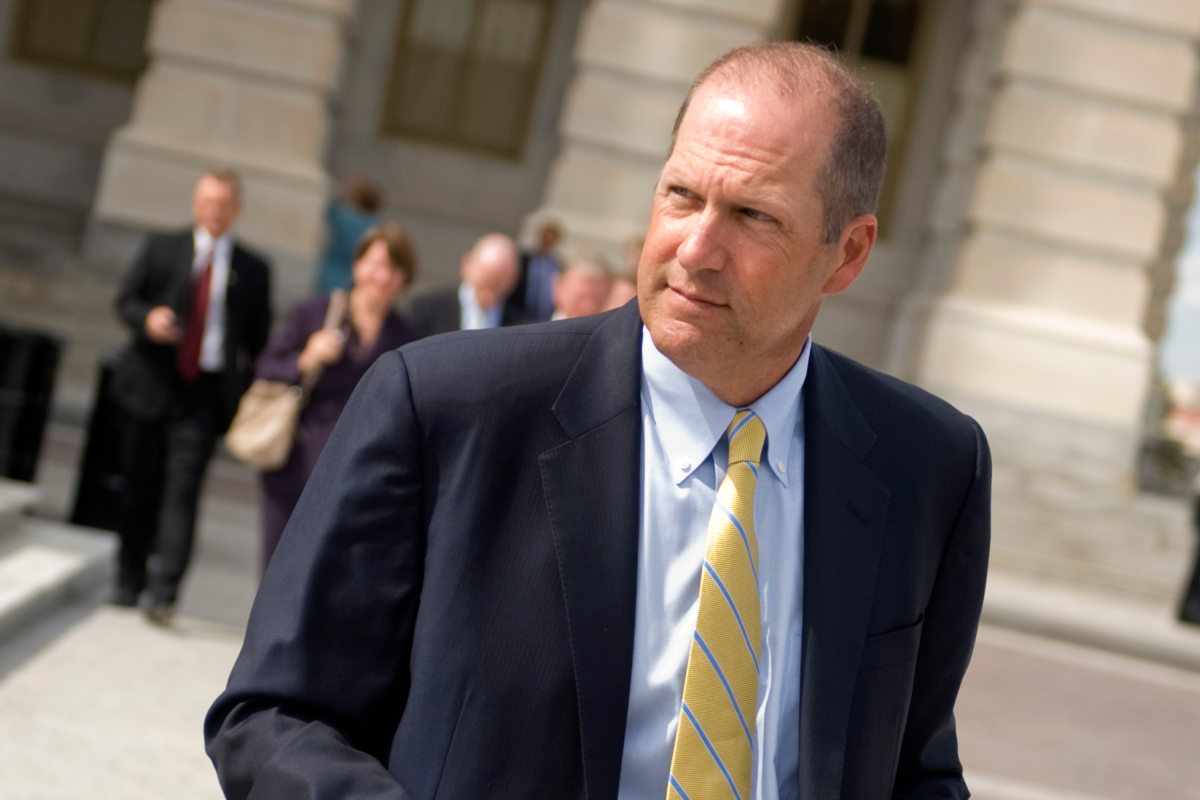Copyright Newsweek

Former Republican Senator John Sununu jumped into the New Hampshire Senate race on Wednesday, launching a bid to win back the seat he held more than 15 years ago. Scott Brown, a former GOP senator who is already in the race, slammed Sununu's candidacy in a statement to Newsweek, writing that he “stopped one political dynasty before, and intend to do the same in 2026.” Newsweek reached out to the campaigns of Sununu and Representative Chris Pappas, the leading Democratic candidate, for comment via email. Why It Matters Incumbent Democratic Senator Jeanne Shaheen announced she is not running for reelection in the Granite State, leaving open a seat in a state that proved to be competitive in last year’s presidential election, backing former Vice President Kamala Harris by fewer than three percentage points. Republicans are hoping to target New Hampshire next year, and some view Sununu as a strong candidate to compete in a state that has generally leaned Democratic in the most recent federal elections. But forecasters give Democrats an advantage. Generally, the party in the White House loses seats in the midterms. While Republicans have performed well in gubernatorial races, the state’s voters have preferred Democrats in presidential and Senate races. What to Know Sununu represented New Hampshire in the Senate from 2003 to 2009, losing his reelection to Shaheen in 2008. He comes from a well-known political family, with his father, John Sununu, and brother, Chris Sununu, both once serving as the state's governors. In a campaign launch video on Wednesday, he touted bipartisan credentials. “Washington has never been perfect. It’s not meant to be. But when I was there, people with different opinions could get together, work things out and come to solutions that made a real difference,” he said. “Now, Congress just seems loud, dysfunctional, even angry.” He said he would “lower the temperature” and “get things done” in Washington if elected. Sununu is going to face another former senator in the GOP primary, as his chief rival, Scott Brown, represented Massachusetts in the Senate from 2010 to 2013. Pappas, who currently represents New Hampshire’s First Congressional District, which comprises the eastern half of the state, is viewed as the leading Democrat and has led polls against Brown and Sununu. A University of New Hampshire poll showed Pappas with a six-point lead over Sununu (49 percent to 43 percent) and a 15-point lead over Brown (52 percent to 37 percent). It surveyed 1,235 likely voters from September 17 to September 23 and had a margin of error of plus or minus 2.8 percentage points. A recent co/efficient poll also gave Pappas an advantage over both Republicans, but pointed to a potentially competitive race. It found him leading Sununu by only three points (45 percent to 42 percent) and Brown by 10 points (49 percent to 39 percent). The poll surveyed 1,034 likely voters from October 9 to October 13, 2025, and had a margin of error of plus or minus 3.1 percentage points. A poll from 1892, conducted on behalf of a GOP-aligned group, similarly showed a close race. It found Pappas leading Sununu by only two points (45 percent to 43 percent), with 12 percent remaining undecided. It surveyed 500 likely voters from September 2 to September 4, 2025, and had a margin of error of plus or minus 4.4 percentage points. Andrew Smith, a professor of political science at the University of New Hampshire, told Newsweek that Sununu will start out as the strongest GOP candidate because of his name recognition and fundraising ability. “He is not tied to President Trump, which will hurt him somewhat in the primary, but should help in the general election,” he said. “Scott Brown is pushing his closeness to Trump which will help in the Primary but cost him support from moderate Republicans in the general election.” While 2026 is likely to be a good year for Democrats, Sununu being the nominee could give Republicans a chance to win in the general election, according to Smith. “It will definitely be one of the most competitive Senate seats in 2026,” he said. New Hampshire has generally leaned toward Democrats in recent years in federal races, but has remained close. It gave Harris 50.7 and Trump 47.9 percent of the vote last November. Former President Joe Biden carried the state by more than 7 points in 2020, while former Secretary of State Hillary Clinton eked out a win in New Hampshire by less than half a percentage point in 2016. At the same time, New Hampshire voters have elected Republican governors. Governor Kelly Ayotte, a former senator, won by about 9 points last year, following former Governor Chris Sununu, who opted against running. What People Are Saying Former Senator Scott Brown said in a statement to Newsweek: “Anyone who thinks that a never Trump, corporate lobbyist who hasn’t won an election in a quarter century will resonate with today’s GOP primary voters is living in a different universe. While John was supporting John Kasich in 2016, I was campaigning with Donald Trump. While John was fighting for special interests, I was serving in the first Trump administration. While John was wooing the DC establishment this summer, I have been working with grassroots activists across the Granite State. Senate seats are earned, not handed down. I stopped one political dynasty before, and intend to do the same in 2026.” Democratic Senatorial Campaign Committee spokesperson Maeve Coyle said in a statement: “New Hampshire’s GOP Senate primary just got even messier with the entrance of John Sununu, who first went to Washington nearly thirty years ago and then walked through the revolving door to sell out to Wall Street and corporate interests. Republicans have not won a New Hampshire Senate seat in over a decade and 2026 will be no different.” What Happens Next Both the Cook Political Report and Sabato’s Crystal Ball classify the New Hampshire Senate race as Leans Democrat.



